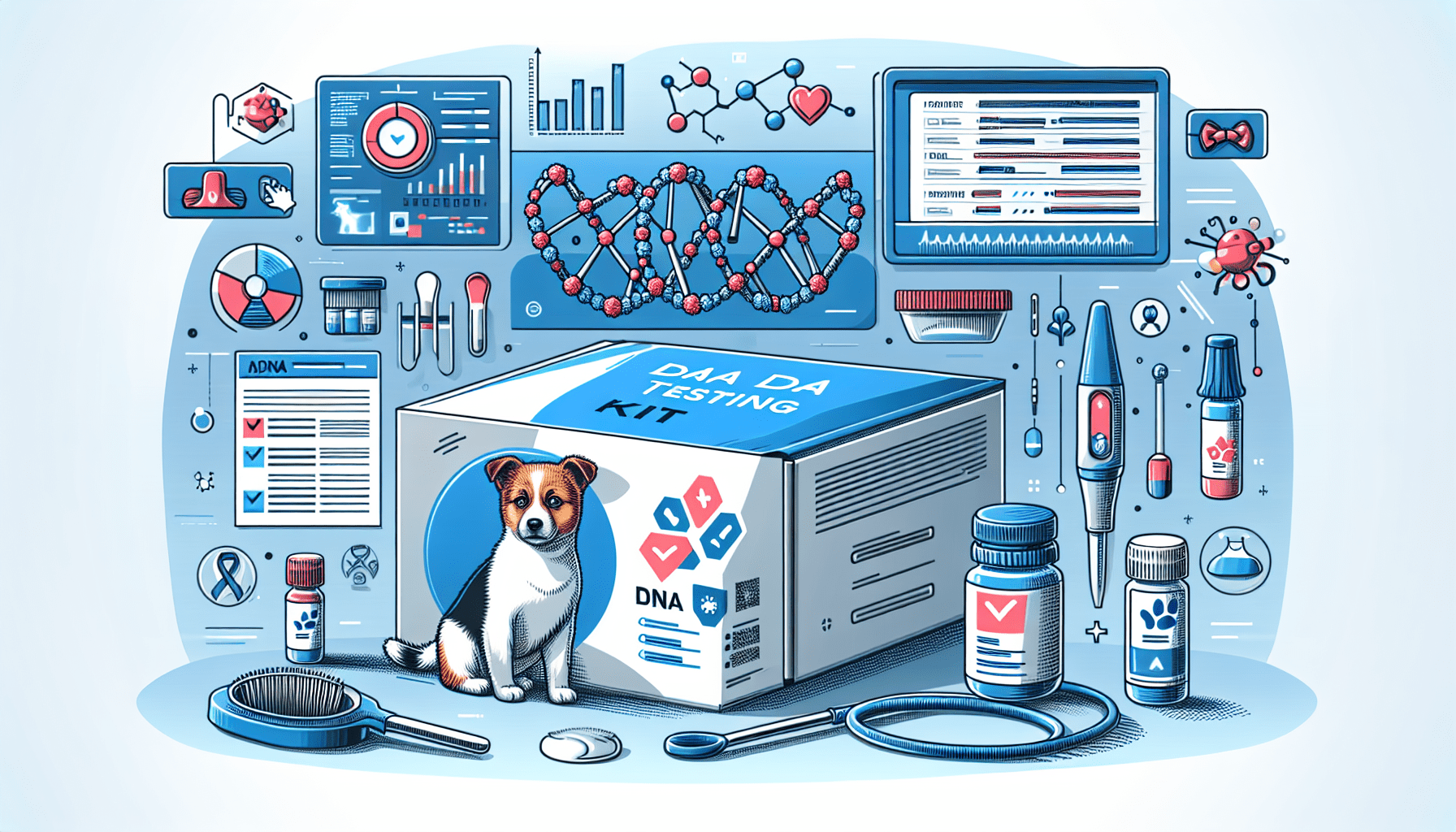Welcome to an article discussing the ethics of pet genetic testing. In recent years, the popularity of genetic testing for pets has grown exponentially, offering insights into their health, breed composition, and potential genetic diseases. While this technology can provide valuable information to pet owners, ethical considerations arise regarding privacy, consent, and the potential for discrimination based on genetic information. Let’s delve into the complexities of pet genetic testing and explore the ethical implications surrounding this growing trend. Have you ever considered having genetic testing done for your pet?

Understanding Pet Genetic Testing
Pet genetic testing is a rapidly growing field that can provide valuable information about your furry friend’s health, breed composition, and potential genetic diseases. This article will explore the ethics surrounding pet genetic testing to help you make an informed decision about whether it’s right for your pet.
What is Pet Genetic Testing?
Pet genetic testing involves analyzing your pet’s DNA to identify genetic markers associated with specific traits or conditions. This can help you better understand your pet’s breed composition, potential health risks, and even their behavior tendencies. The results of genetic testing can provide valuable insights that might not be apparent from physical characteristics alone.
Benefits of Pet Genetic Testing
There are several benefits to having genetic testing done for your pet. Understanding these advantages can help you decide if it’s the right choice for your furry friend.
Early Detection of Genetic Diseases
One of the most significant benefits of pet genetic testing is the early detection of genetic diseases. By identifying potential health risks early on, you can take proactive steps to manage or treat these conditions before they become serious. This can ultimately improve your pet’s quality of life and longevity.
Personalized Healthcare Plans
Another benefit of pet genetic testing is the ability to create personalized healthcare plans for your pet. With insights into their genetic predispositions, you can work with your veterinarian to tailor their diet, exercise regimen, and preventive care strategies to meet their specific needs. This individualized approach to pet care can lead to better health outcomes and a higher quality of life for your furry friend.
Breed Identification
Pet genetic testing can also provide valuable information about your pet’s breed composition. This can be particularly useful for mixed-breed pets or rescue animals with unknown backgrounds. Knowing your pet’s breed makeup can help you better understand their behavior tendencies, potential health risks, and even their appearance as they age.
Ethical Considerations of Pet Genetic Testing
While there are many benefits to pet genetic testing, it’s essential to consider the ethical implications of this practice.
Informed Consent
One ethical consideration surrounding pet genetic testing is the issue of informed consent. Since pets cannot provide consent in the same way humans can, it’s crucial for pet owners to make informed decisions on their behalf. This includes understanding the purpose of genetic testing, the potential risks and benefits, and how the results will be used.
Privacy and Data Security
Another ethical concern related to pet genetic testing is privacy and data security. When you submit your pet’s DNA for testing, you’re sharing sensitive information about their genetic makeup. It’s essential to choose a reputable testing provider that prioritizes data security and privacy to ensure that your pet’s information is protected.
Genetic Discrimination
Pet genetic testing results can reveal information about your pet’s breed composition, health risks, and behavior tendencies. While this information can be valuable for creating personalized healthcare plans, it could also potentially lead to genetic discrimination. This might include breed-specific legislation, insurance limitations, or social stigmas based on genetic predispositions.
Choosing a Pet Genetic Testing Provider
If you’re considering pet genetic testing for your furry friend, it’s essential to choose a reputable provider that prioritizes ethical practices and data security.
Research Providers
Before selecting a pet genetic testing provider, take the time to research different companies and compare their services. Look for providers that have a good reputation, transparent practices, and clear policies on data security and privacy. Reading reviews and testimonials from other pet owners can also help you make an informed decision.
Understand the Testing Process
Once you’ve chosen a provider, take the time to understand the testing process and what to expect. Most pet genetic testing kits involve collecting a DNA sample from your pet, either through a cheek swab or blood sample. This sample is then sent to the testing facility, where it is analyzed for genetic markers related to traits, breed composition, and health risks.
Review Terms of Service
Before submitting your pet’s DNA for testing, carefully review the provider’s terms of service and privacy policy. Pay close attention to how your pet’s genetic information will be used, stored, and shared. If you have any concerns about data security or privacy, don’t hesitate to reach out to the provider for clarification.

Conclusion
Pet genetic testing offers valuable insights into your furry friend’s health, breed composition, and behavior tendencies. While there are many benefits to genetic testing, it’s essential to consider the ethical implications of this practice. By understanding the ethical considerations, choosing a reputable provider, and making informed decisions on your pet’s behalf, you can ensure that pet genetic testing is a positive experience for both you and your furry friend.

